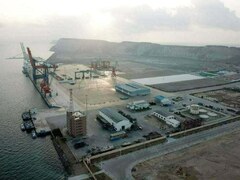EDITORIAL: The government has agreed to increase the price of a drug which is used to treat fever and mild pain. Earlier, the Islamabad Health Department’s attempt to play down the impact of a leading drug manufacturer’s decision to suspend production of this drug in Pakistan, by saying that there were plenty of alternatives in the market with the same formula, seems to have missed a rather obvious fact or two.
Prices of raw materials for painkillers have almost doubled in recent months, as the department admitted, so if those alternatives use the same ingredients then their producers are no doubt facing the same dilemma. And a few of them, at the very least, would surely find that drug manufacturing company’s precedent of declaring force majeure pretty inviting.
There’s no doubt that two times the input cost with no change in retail price has given pharma producers “negative margins”, as the drug manufacturing company’s explanation put it, while the cold calculus of the market demands fat profits.
Yet the colder, crueler logic of politics will not allow them to adjust their margins; not when it will give a super-charged opposition one more drum to beat on its long march and the government has the luxury of controlling drug prices.
That is why the interests of the people, which the government is trying to hide behind in a desperate bid to avoid bad press, is taking the back seat. There’s no point in blaming the company for cutting its losses. That’s textbook free market. And neither the state nor the people were ever interested in building a socialist government and/or economy.
The fault lies with the state and its obsession with micromanaging in what is after all a competitive market. And it clearly learned no lessons even as its ridiculous policy architecture drove multinationals out of the country and local manufacturers out of business.
Therefore it, not any private company, must answer for this shortfall just when the medicine is needed more than ever.
Spikes in malaria and dengue fever are doing their annual rounds, and the aftermath of the floods has given rise to extraordinary misery and disease, radically increasing the demand for this particular drug.
It is, therefore, heartening to note that the government has come to its senses sooner rather than later by realizing the criticality or importance of this drug’s availability on a mass scale.
Copyright Business Recorder, 2022






















Comments
Comments are closed.